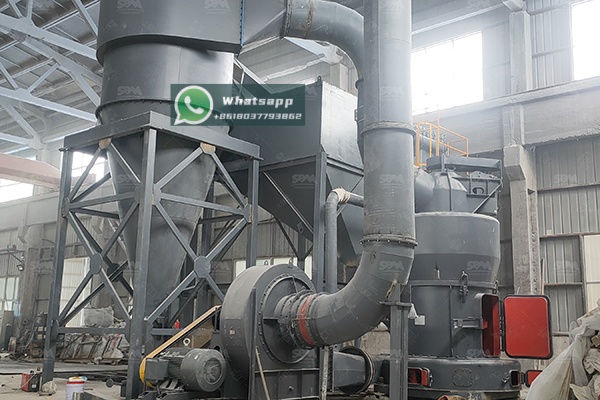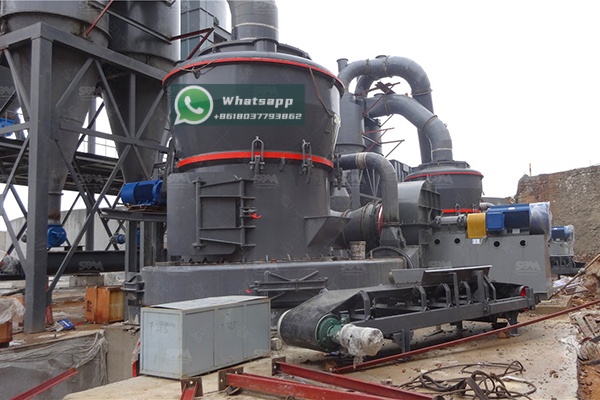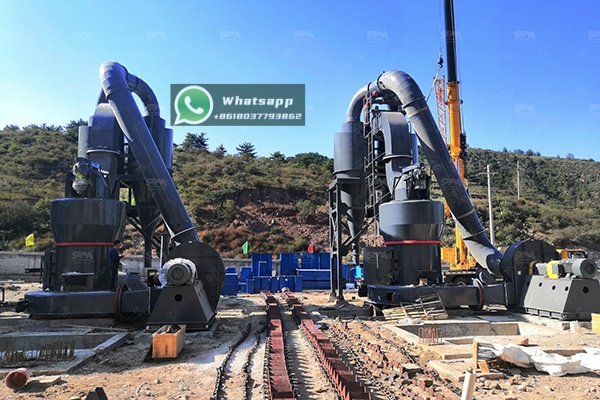The plaster manufacturing industry is a cornerstone of modern construction, providing the essential materials for creating smooth, durable, and aesthetically pleasing walls and ceilings. At the heart of this process lies gypsum, a soft sulfate mineral that must be meticulously ground into a fine powder to become the base for plaster, plasterboard, and other building products. The efficiency, quality, and cost-effectiveness of this grinding process are paramount, making the choice of grinding equipment a critical decision for manufacturers. This article explores the pivotal role of the Raymond Mill in gypsum processing for the plaster industry and highlights advanced solutions from a leading industry expert.

Gypsum (CaSO₄·2H₂O) is the primary raw material for plaster. Its value is derived from its unique property of reversible dehydration. When heated (calcined), gypsum loses water to form calcium sulfate hemihydrate (CaSO₄·½H₂O), commonly known as plaster of Paris. This calcined gypsum, when mixed with water, rehydrates and hardens into a solid mass. The fineness of the initial gypsum powder directly influences key properties of the final plaster product, including:
Therefore, achieving the precise and consistent fineness is not merely a mechanical process but a fundamental requirement for product quality.
Among the various grinding technologies available, the Raymond Mill has proven to be exceptionally well-suited for processing gypsum. Its design principles offer distinct advantages for this specific application:

Selecting the right equipment supplier is as crucial as selecting the right technology. Shanghai Zenith Machinery Co., Ltd. stands out as an excellent manufacturer of ore grinding equipment in China, with profound expertise and great achievements in the field of ultra-fine powder grinding. Specializing in the research, development, and production of industrial crushing and grinding equipment, Zenith offers robust and technologically advanced solutions tailored for the plaster industry.
While Zenith provides a comprehensive portfolio of grinding mills, their Raymond Mill series represents a perfect blend of traditional reliability and modern innovation, making it an exemplary choice for gypsum processing plants worldwide.
For medium to large-scale plaster manufacturing facilities, Zenith’s YGM4121 model is a highly recommended workhorse. This 5-roller Raymond Mill is engineered for high capacity and consistent performance, delivering the precise fineness required for high-quality plaster production.
| Model | Roller Quantity (pcs) | Max.Feed Size (mm) | Discharging Size (mm) | Capacity (t/h) |
|---|---|---|---|---|
| YGM4121 | 5 | 30 | 1.6-0.045 | 5-11 |
This mill efficiently handles gypsum rock with a feed size of up to 30mm, grinding it to a fine powder between 1.6mm and 0.045mm (approx. 30-325 mesh). With a capacity ranging from 5 to 11 tons per hour, it is perfectly scaled for continuous production lines. Its design emphasizes energy saving and environmental protection, offering high grinding efficiency and lower energy consumption, which translates directly into higher economic profits for the plant operator.
For projects requiring even finer gypsum powders or possessing specific operational constraints, Zenith’s broader product line offers excellent alternatives. The XZM Ultrafine Grinding Mill is particularly noteworthy for producing superfine gypsum powders reaching 2500 mesh (5 microns), which are used in specialized high-value plaster applications or other industries. Another formidable option is the LM Vertical Grinding Mill, which integrates crushing, grinding, powder selection, drying, and conveying into a single unit, offering a remarkably small footprint and exceptional energy efficiency for large-scale projects.
The transformation of raw gypsum into a high-quality plaster base is a precision process where the grinding mill plays a starring role. The Raymond Mill, with its proven technology, ideal fineness range, and operational efficiency, remains a top choice for plaster manufacturers globally. Partnering with a technologically advanced and reliable manufacturer like Shanghai Zenith Machinery Co., Ltd. ensures access to optimized equipment, such as their high-performance YGM4121 Raymond Mill, which is engineered to deliver consistent quality, reduce operating costs, and maximize productivity. By investing in the right grinding technology, plaster manufacturers can secure a critical competitive advantage in a demanding and quality-conscious market.
